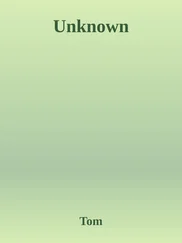Michael Ondaatje - The English Patient
Здесь есть возможность читать онлайн «Michael Ondaatje - The English Patient» весь текст электронной книги совершенно бесплатно (целиком полную версию без сокращений). В некоторых случаях можно слушать аудио, скачать через торрент в формате fb2 и присутствует краткое содержание. Жанр: Старинная литература, на русском языке. Описание произведения, (предисловие) а так же отзывы посетителей доступны на портале библиотеки ЛибКат.
- Название:The English Patient
- Автор:
- Жанр:
- Год:неизвестен
- ISBN:нет данных
- Рейтинг книги:4 / 5. Голосов: 1
-
Избранное:Добавить в избранное
- Отзывы:
-
Ваша оценка:
- 80
- 1
- 2
- 3
- 4
- 5
The English Patient: краткое содержание, описание и аннотация
Предлагаем к чтению аннотацию, описание, краткое содержание или предисловие (зависит от того, что написал сам автор книги «The English Patient»). Если вы не нашли необходимую информацию о книге — напишите в комментариях, мы постараемся отыскать её.
The English Patient — читать онлайн бесплатно полную книгу (весь текст) целиком
Ниже представлен текст книги, разбитый по страницам. Система сохранения места последней прочитанной страницы, позволяет с удобством читать онлайн бесплатно книгу «The English Patient», без необходимости каждый раз заново искать на чём Вы остановились. Поставьте закладку, и сможете в любой момент перейти на страницу, на которой закончили чтение.
Интервал:
Закладка:
In her print dress she walked away from the celebration. She went into the room she shared with the other nurses and sat down. Something flickered in her eye as she sat, and she caught the eye of a small round mirror. She got up slowly and went towards it. It was very small but even so seemed a luxury. She had refused to look at herself for more than a year, now and then just her shadow on walls. The mirror revealed only her cheek, she had to move it back to arm’s length, her hand wavering. She watched the little portrait of herself as if within a clasped brooch. She. Through the window there was the sound of the patients being brought out into the sunlight in their chairs, laughing and cheering with the staff. Only those who were seriously ill were still indoors. She smiled at that. Hi Buddy, she said. She peered into her look, trying to recognize herself.
Darkness between Hana and Caravaggio as they walk in the garden. Now he begins to talk in his familiar slow drawl.
“It was someone’s birthday party late at night on Danforth Avenue. The Night Crawler restaurant. Do you remember, Hana? Everyone had to stand and sing a song. Your father, me, Giannetta, friends, and you said you wanted to as well—for the first time. You were still at school then, and you had learned the song in a French class.
“You did it formally, stood on the bench and then one more step up onto the wooden table between the plates and the candles burning.
“ ‘Alonson fon!’
“You sang out, your left hand to your heart. Alonson fon! Half the people there didn’t know what the hell you were singing, and maybe you didn’t know what the exact words meant, but you knew what the song was about.
“The breeze from the window was swaying your skirt over so it almost touched a candle, and your ankles seemed fire-white in the bar. Your father’s eyes looking up at you, miraculous with this new language, the cause pouring out so distinct, flawless, no hesitations, and the candles swerving away, not touching your dress but almost touching. We stood up at the end and you walked off the table into his arms.”
“I would remove those bandages on your hands. I am a nurse, you know.”
“They’re comfortable. Like gloves.”
“How did this happen.”
“I was caught jumping from a woman’s window. That woman I told you about, who took the photograph. Not her fault.”
She grips his arm, kneading the muscle. “Let me do it.” She pulls the bandaged hands out of his coat pockets. She has seen them grey in daylight, but in this light they are almost luminous.
As she loosens the bandages he steps backwards, the white coming out of his arms as if he were a magician, till he is free of them. She walks towards the uncle from childhood, sees his eyes hoping to catch hers to postpone this, so she looks at nothing but his eyes.
His hands held together like a human bowl. She reaches for them while her face goes up to his cheek, then nestles in his neck. What she holds seems firm, healed.
“I tell you I had to negotiate for what they left me.”
“How did you do that?”
“All those skills I used to have.”
“Oh, I remember. No, don’t move. Don’t drift away from me.”
“It is a strange time, the end of a war.”
“Yes. A period of adjustment.”
“Yes.”
He raises his hands up as if to cup the quarter-moon.
“They removed both thumbs, Hana. See.”
He holds his hands in front of her. Showing her directly what she has glimpsed. He turns one hand over as if to reveal that it is no trick, that what looks like a gill is where the thumb has been cut away. He moves the hand towards her blouse.
She feels the cloth lift in the area below her shoulder as he holds it with two fingers and tugs it softly towards him.
“I touch cotton like this.”
“When I was a child I thought of you always as the Scarlet Pimpernel, and in my dreams I stepped onto the night roofs with you. You came home with cold meals in your pockets, pencil cases, sheet music off some Forest Hill piano for me.”
She speaks into the darkness of his face, a shadow of leaves washing over his mouth like a rich woman’s lace. “You like women, don’t you? You liked them.”
“I like them. Why the past tense?”
“It seems unimportant now, with the war and such things.”
He nods and the pattern of leaves rolls off him.
“You used to be like those artists who painted only at night, a single light on in their street. Like the worm-pickers with their old coffee cans strapped to their ankles and the helmet of light shooting down into the grass. All over the city parks. You took me to that place, that café where they sold them. It was like the stock exchange, you said, where the price of worms kept dropping and rising, five cents, ten cents. People were ruined or made fortunes. Do you remember?”
“Yes.”
“Walk back with me, it’s getting cold.”
“The great pickpockets are born with the second and third fingers almost the same length. They do not need to go as deep into a pocket. The great distance of half an inch!”
They move towards the house, under the trees.
“Who did that to you?”
“They found a woman to do it. They thought it was more trenchant. They brought in one of their nurses. My wrists handcuffed to the table legs. When they cut off my thumbs my hands slipped out of them without any power. Like a wish in a dream. But the man who called her in, he was really in charge—he was the one. Ranuccio Tommasoni. She was an innocent, knew nothing about me, my name or nationality or what I may have done.”
When they came into the house the English patient was shouting. Hana let go of Caravaggio and he watched her run up the stairs, her tennis shoes flashing as she ascended and wheeled around with the banister.
The voice filled the halls. Caravaggio walked into the kitchen, tore off a section of bread and followed Hana up the stairs. As he walked towards the room the shouts became more frantic. When he stepped into the bedroom the Englishman was staring at a dog—the dog’s head angled back as if stunned by the screaming. Hana looked over to Caravaggio and grinned.
“I haven’t seen a dog for years . All through the war I saw no dog.”
She crouched and hugged the animal, smelling its hair and the odour of hill grasses within it. She steered the dog towards Caravaggio, who was offering it the heel of bread. The Englishman saw Caravaggio then and his jaw dropped. It must have seemed to him that the dog—now blocked by Hana’s back—had turned into a man. Caravaggio collected the dog in his arms and left the room.
I have been thinking, the English patient said, that this must be Poliziano’s room. This must have been his villa we are in. It is the water coming out of that wall, that ancient fountain. It is a famous room. They all met here.
It was a hospital, she said quietly. Before that, long before that a nunnery. Then armies took it over.
I think this was the Villa Bruscoli. Poliziano—the great protégé of Lorenzo. I’m talking about 1483. In Florence, in Santa Trinità Church, you can see the painting of the Medicis with Poliziano in the foreground, wearing a red cloak. Brilliant, awful man. A genius who worked his way up into society.
It was long past midnight and he was wide awake again.
Okay, tell me, she thought, take me somewhere. Her mind still upon Caravaggio’s hands. Caravaggio, who was by now probably feeding the stray dog something from the kitchen of the Villa Bruscoli, if that was what its name was.
It was a bloody life. Daggers and politics and three-decker hats and colonial padded stockings and wigs. Wigs of silk! Of course Savonarola came later, not much later, and there was his Bonfire of the Vanities. Poliziano translated Homer. He wrote a great poem on Simonetta Vespucci, you know her?
Читать дальшеИнтервал:
Закладка:
Похожие книги на «The English Patient»
Представляем Вашему вниманию похожие книги на «The English Patient» списком для выбора. Мы отобрали схожую по названию и смыслу литературу в надежде предоставить читателям больше вариантов отыскать новые, интересные, ещё непрочитанные произведения.
Обсуждение, отзывы о книге «The English Patient» и просто собственные мнения читателей. Оставьте ваши комментарии, напишите, что Вы думаете о произведении, его смысле или главных героях. Укажите что конкретно понравилось, а что нет, и почему Вы так считаете.












